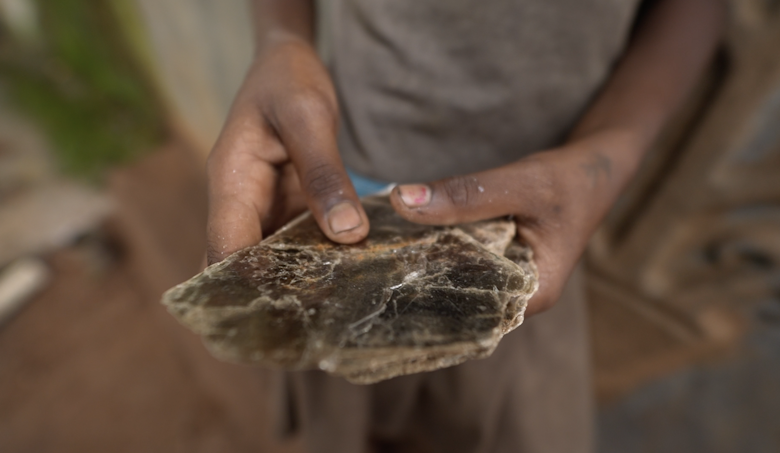Breakthrough in addressing Worst Forms of Child Labour of mica mines in Jharkhand, India
This week Jharkhand´s Chief Minister, Hermant Soren, has inaugurated a model to develop cooperatives of mica miners after the adoption of the ‘Dhibra policy’. This legalises the artisanal mining of mica scrap (dhibra). Terre des Hommes Netherlands has been combating Worst Forms of Child Labour (WFCL) in mica mines in India since 2015.
Living income for adult mica miners
Approximately 300.000 mica workers depend on mining mica scrap for their survival. The government will establish a minimum price per kilo which will contribute towards a living income for adult mica miners, so they no longer rely on their children's labour to survive.
Mica program manager Maggie de Jongh-Abebe is very excited about this development: "Terre des Hommes Netherlands places particular emphasis on addressing root causes of the Worst Forms of Child Labour. This includes poverty, lack of social services and the illegal nature of mica mining in Jharkhand and Bihar. This systemic change is the result of years of government engagement. This policy and model will improve conditions for all mica workers and their children in this state."
Cooperatives of mica miners
This is a result of many years of research and government engagement by Terre des Hommes and key partners, most importantly the Responsible Mica Initiative. In 2019 TdH commissioned a study on finding a ´Pragmatic Policy solution for Dhibra Pickers of Jharkhand´. This study explored the possibilities of formalising mica collection comparing different forest based produces from other states of India and engaged the government of Jharkhand. The idea to collect and sell mica scrap through a cooperative model was introduced and potential revenues for the government as a consequence of formalisation were mapped.
Children out of mines ands systemic change
The adoption of the Dhibra policy and empowerment of the Jharkhand State Mineral Development Cooperation (JSMDC) is a great step towards responsible sourcing of child labour free mica from Jharkhand. However, the implementation of this policy will require significant resources and technical assistance to the mica pickers that will be organised as mica cooperatives, as well as to the village, district and state level entities that will all play a role in the formal production and sourcing of mica scrap. Terre des Hommes Netherlands draws on its experience in other supply chains to share expertise on the establishment and functioning of workers´ cooperatives in tamarind processing and milk production. Please support us to continue helping children get out of mines now AND bringing about this essential systemic change.

